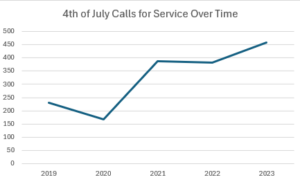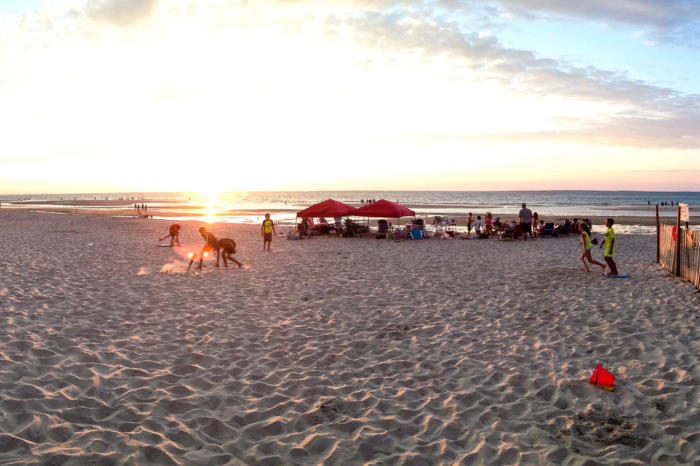Cape Cod Restricts Fourth of July Parties: What’s the Economic Impact?
Cape Cod is home to numerous recreational activities, including summer vacations and parties. However, over the last few years, some parties at public beaches have gotten out of hand, leading the Dennis Police Department to make headlines by announcing restrictions on certain beaches this Fourth of July. These restrictions include: bans on daily parking passes, alcohol, street parking near beaches, and stricter controls on loud music and other unruly behavior.
Last year, about 2,000 people swarmed to Mayflower Beach alone on the Fourth, and it’s understandable that Dennis wants to avoid a repeat, as town police officers answered 459 calls last Fourth of July, up from 253 in 2019, according to WCVB.
The growth is overwhelming for a town with only 48 full-time officers and $6 million in police spending in 2022, according to Mass Analysis. Over the last few years, these calls covered many incidents, including fighting, public urination, assault, and setting fires, and led to 13 arrests in 2023. In addition, these partygoers disturb residents and leave beaches covered with litter.

Figure 1: Created from data taken from Dennis Town Website
With daily parking passes costing $30 each and about 400 parking spots across the three beaches – Mayflower Beach, Chapin Beach, and Bayview Beach – facing restrictions, Dennis stands to lose up to $12,000, although many spaces would likely be taken by seasonal and weekly parking pass holders. On top of lost revenue for the town, local stores and restaurants would also lose income. All in all, Dennis, a town of about 15,000 that collected over $76 million in revenue in 2022 according to Mass Analysis, will feel a pinch. But compared to the massive disruption the Fourth of July has caused in past years – annoying residents, trashing beaches, and inciting violence – the lost revenue is a sacrifice Dennis is willing to make.
About the Author: Raif Boit is a Roger Perry Transparency Intern at Pioneer Institute for the summer of 2024. He is a rising freshman at Harvard College

 Kenneth C. Zirkel, CC BY-SA 4.0
Kenneth C. Zirkel, CC BY-SA 4.0 
